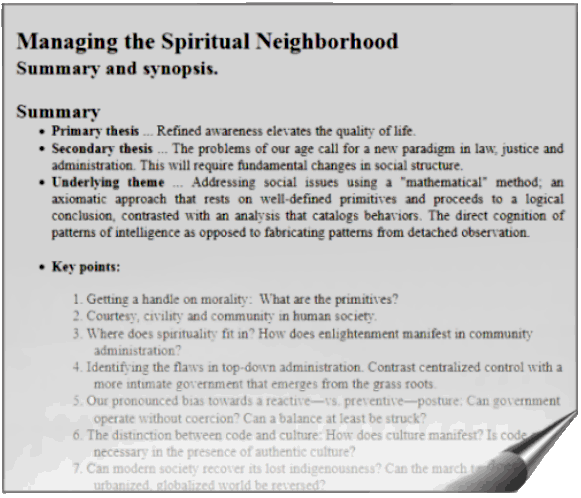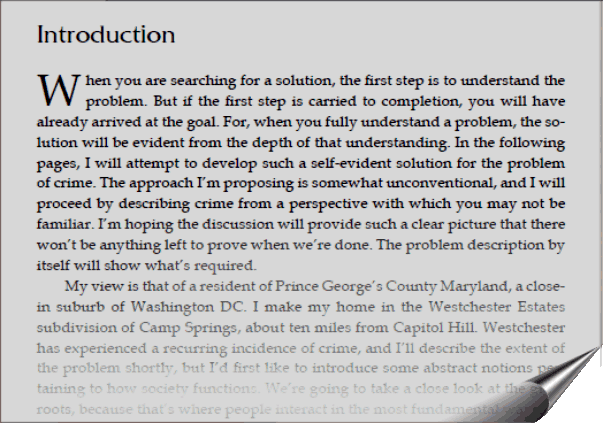

Holes in the Spiritual Neighborhood
Ten Principles of Community Law


Finally, a work that resolves some of the thorniest questions in political science. Not with opinions and polemics, but with reasoned, mathematical precision and a voice that echos an authenic spiritual foundation.
Law and government in this age is in a fearful state. But
there are signs that people are waking up, that a new paradigm is dawning.
Bottom-up government -- culture that emerges from the grass-roots, from the
consciousness of enlightened communities ... this is direction of societal
evolution. Here we have a roadmap -- a path to achieving what
might seem impossible: a society free from crime, free from failure, free
from emergencies and emergency consciousness.
There is a quiet revolution going on. A new kind of thinking
is taking hold and a new social order is dawning. The heroes of this revolution are not partisans or politicians. Rather,
they are ordinary men and women working under the radar in cities, towns and communities everywhere. They
are taking responsibility for the health and well being of their neighbors and neighborhoods, shaking the
foundations of our political system,and defying conventional wisdom about the problems facing mankind.
The standard approach of top-down administration and top-down control will fall by the wayside as this bottom-up
movement gains momentum.
Alexander Gabis is one of the new revolutionaries. His work bridges the divide between
gritty reality and lofty idealism. A masterful blend of cosmic vision, abstract argument and urban street cred, it defines
a new profession — Garden Zone Management — and with the principles of "Community Law," puts forth a plan for
restoring basic humanity to our legal and judicial systems. The case for change is so compelling that you'll be
inspired to take up the cause yourself - to carry the revolution to your own backyard.
Managing the Spiritual Neighborhood challenges the intellect and probes the soul.
It revives the spirit of meaningful politics, compassionate outreach and effective
activism at the grass roots of America.